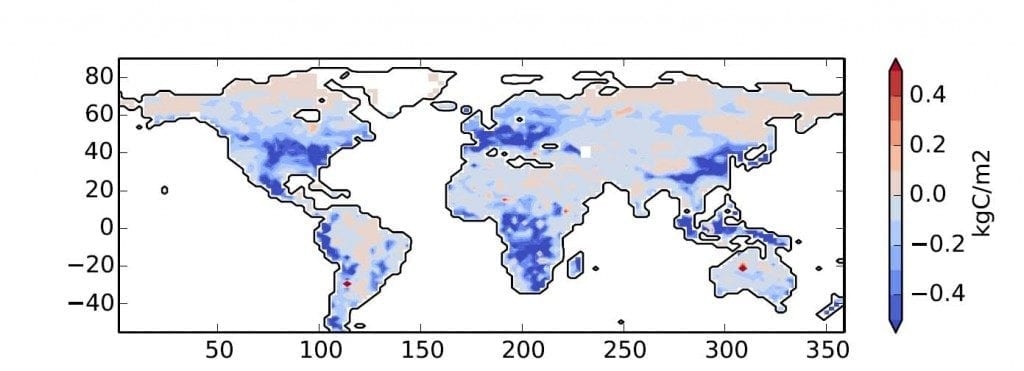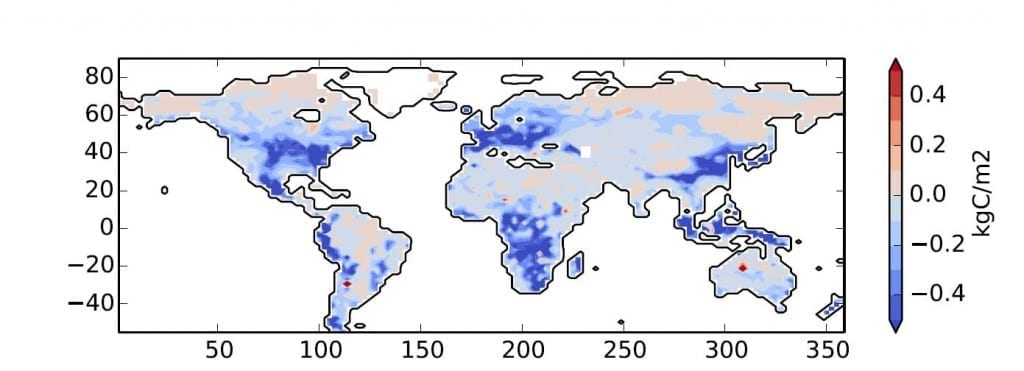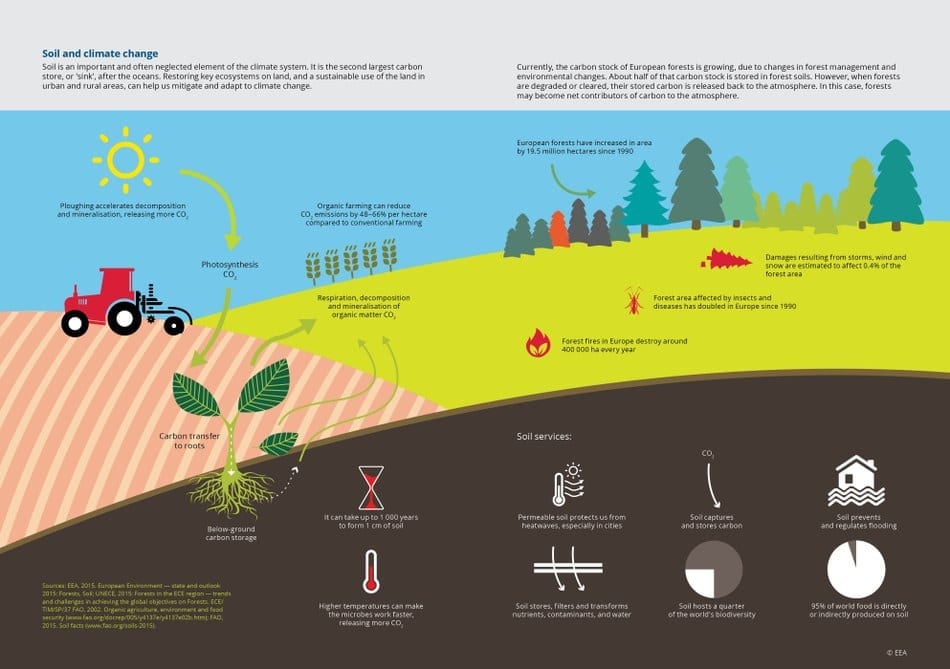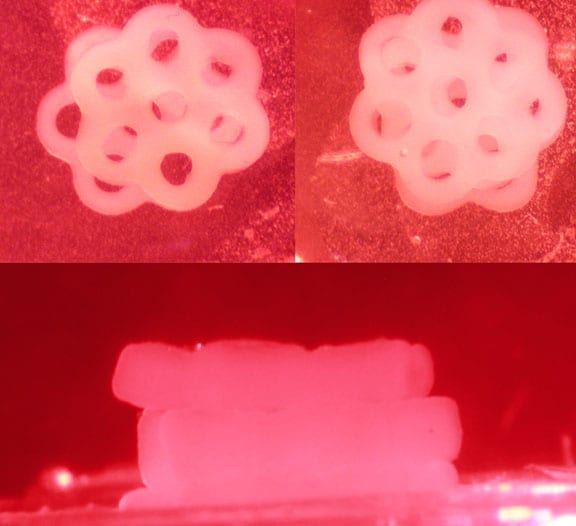
An increase in human-made carbon dioxide in the atmosphere could initiate a chain reaction between plants and microorganisms that would unsettle one of the largest carbon reservoirs on the planet — soil.
Researchers based at Princeton University report in the journal Nature Climate Change that the carbon in soil — which contains twice the amount of carbon in all plants and Earth’s atmosphere combined — could become increasingly volatile as people add more carbon dioxide to the atmosphere, largely because of increased plant growth. The researchers developed the first computer model to show at a global scale the complex interaction between carbon, plants and soil, which includes numerous bacteria, fungi, minerals and carbon compounds that respond in complex ways to temperature, moisture and the carbon that plants contribute to soil.
Although a greenhouse gas and pollutant, carbon dioxide also supports plant growth. As trees and other vegetation flourish in a carbon dioxide-rich future, their roots could stimulate microbial activity in soil that in turn accelerates the decomposition of soil carbon and its release into the atmosphere as carbon dioxide, the researchers found.
This effect counters current key projections regarding Earth’s future carbon cycle, particularly that greater plant growth could offset carbon dioxide emissions as flora take up more of the gas, said first author Benjamin Sulman, who conducted the modeling work as a postdoctoral researcher at the Princeton Environmental Institute.
“You should not count on getting more carbon storage in the soil just because tree growth is increasing,” said Sulman, who is now a postdoctoral researcher at Indiana University.
The Latest on: Soil carbon
[google_news title=”” keyword=”Soil carbon” num_posts=”10″ blurb_length=”0″ show_thumb=”left”]
via Google News
The Latest on: Soil carbon
- International Demand for Carbon Credits Generated in Africa could have Damaging Effects for Local Communitieson May 8, 2024 at 1:50 am
Members of Kenya’s Maasai pastoralist community are clashing with managers of a major carbon project. The Northern Kenya Rangelands Carbon Project (NKRCP), ...
- Cracking Soils Could Accelerate Climate Changeon May 7, 2024 at 6:23 am
Climate change is expected to lead to more frequent and intense drought, which in turn causes soil to crack, releasing more carbon dioxide and further warming the planet.
- Communities in Kenya fight carbon project that sold credits to Meta, Netflixon May 7, 2024 at 4:28 am
Members of Kenya’s Maasai pastoralist community are clashing with managers of a major carbon project through which carbon credits have been sold to corporations including Meta, Netflix and UK bank ...
- Sustainability: HeavyFinance Signs Ukraine Farmland to Carbon Farming Program for Shift to Regenerative Agricultureon May 5, 2024 at 2:32 pm
HeavyFinance signed 300,000 hectares of farmland in Ukraine to its carbon farming program, for shift over to regenerative agriculture.
- This tech investor will pay Ukrainian farmers to trap carbon in their soilon May 2, 2024 at 2:59 am
In the case of Ukraine, local company Agsolco, will verify and issue the soil carbon credits. Companies or countries will buy these tokens as a way to offset their emissions. The more carbon farmers ...
- Abrupt permafrost thaw intensifies warming effects on soil CO2 emissionon April 30, 2024 at 11:06 am
Scientists have found that soil carbon dioxide (CO2) emissions are more sensitive to climate warming in permafrost-collapsed areas than in non-collapsed areas.
- Researchers reveal mechanisms of soil organic carbon accumulation in acidified forest soilson April 30, 2024 at 10:05 am
Southern forests contribute more than 50% of the soil organic carbon (SOC) in China's forest ecosystem, and the soil can still accumulate SOC. Deeply developed tropical and subtropical forest soil has ...
- Studies on Hainan Island rubber plantations reveal secrets of soilon April 30, 2024 at 10:04 am
Microscopic life thrives beneath our feet, playing a crucial role in soil health and carbon storage. Researchers from the Institute of Applied Ecology of the Chinese Academy of Sciences have been ...
- A revolution in quantifying soil carbon change is comingon April 28, 2024 at 10:32 pm
A revolutionary approach to both quantifying and understanding the drivers of soil carbon change will form the basis of Agrimix's presence at beef 2024 next week ..Read More ...
- Precision Pastures: Free events to boost your soil carbon know-how at Beef 2024on April 22, 2024 at 10:56 pm
Precision Pastures will be hosting several free events at Beef 2024 dedicated to helping producers to identify and solve soil health issues to optimise production and increase their soil carbon for a ...
via Bing News











